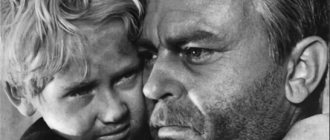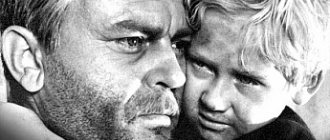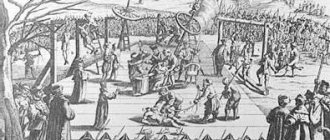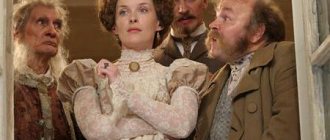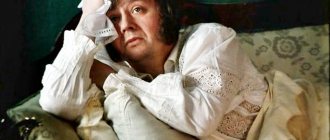History of character creation
In 1851, after another unsuccessful attempt to write an outstanding literary work, Gustave Flaubert fell into prolonged despondency. The man was brought out of his sad state by editor Maxime du Kan, who recommended that the writer try his own strength by creating a novel whose main idea would be more prosaic.
The poet Louis Bouillet, who was present during the conversation, reminded Flaubert of the tragedy that played out with the Delamare family. The story that the acquaintance mentioned was well known to Gustave; the writer’s mother personally knew the affected family.
View this post on Instagram
A post shared by Olivka (@k_olyolivka_) on Aug 18, 2021 at 10:54am PDT
The name of the “prototype” of the main character is Delphine Couturier. A married woman who indulged in numerous adulteries committed suicide at the age of 27. And her husband, unable to bear the revealed truth about his wife, died a year later. This is how the author found the heroes of the novel.
The writer spent more than 5 years at work, carefully studying information for the plot and rewriting the characteristics of the characters. And in 1856, the novel appeared on the pages of the literary magazine Revue de Paris.
The work in the genre of a love story, which tells about the promiscuous affairs of a doctor’s wife, was published chapter by chapter over the course of three months. After a short time, Gustave Flaubert was brought to trial - the author so openly depicted marital adultery that he was accused of insulting morality.
Such a verdict, later overturned, only increased the popularity of the work, making Madame Bovary a worldwide phenomenon. An interesting fact is that the book “Anna Karenina” was subjected to the same criticism. Both of these heroines came from the pen almost 17 years apart and were repeatedly compared by literary researchers.
Biography and image of Madame Bovary
Emma Ruo was born into the family of a wealthy farmer. The girl’s mother died long ago, so the father sent the child to be raised in an Ursuline monastery, where the young romantic creature spent a lot of time secretly reading romance novels.
Having completed her studies, the matured girl returned to her native farm. Some time later, Rouault's father broke his leg, and the family was forced to turn to a local doctor, Charles Bovary.
A middle-aged man lost his head at first sight over the charming daughter of a farmer. But the married doctor did not allow himself even a hint of feelings. However, Emma’s mental tossing did not escape her. The girl’s receptive nature instantly drew for herself a noble image of Charles, who would bring variety to the drab everyday life.
Suddenly the doctor's wife dies, and Emma Ruo receives a marriage proposal. The young Madame Bovary settles in the house of a doctor, who instantly remodels it to her own taste. However, the new wife quickly becomes bored. The romantic hero of girlish dreams turned into an ordinary husband, albeit madly in love with his own wife.
View this post on Instagram
A post shared by Ikhmama. (@svetlana.ihsanova) on Nov 11, 2021 at 11:39pm PST
Alarmed by his wife's mental and physical condition, Charles finds a new job that allows him to move closer to Rouen. Here the beauty met the assistant notary Leon Dupuis. The young man, like the doctor’s wife, turned out to be an enthusiastic person.
The emerging adultery was prevented by the woman's pregnancy and the lover's timidity. Soon the Bovary couple gave birth to a girl, Bertha, who was not particularly interested in her mother. All her thoughts were occupied with the image of Leon, who moved to Paris, leaving the married lady to dream of unearthly passion.
The next passion of the sentimental dreamer was the landowner Rodolphe Boulanger, whose biography every gossip knew in detail. The man, unlike the inexperienced Leon, throws all his strength into conquering the beauty.
Pretty soon the secret relationship begins to weigh on Boulanger. Instead of a convenient mistress living nearby, the man gets a distraught woman. Her pompous remarks seem to repeat quotes from romance novels she read in her youth. Emma demands vows of love, makes scenes and gives expensive gifts, which she borrows from a local merchant in secret from her husband.
Charles’s professional problems finally convince the woman that it is necessary to leave her husband and connect her life with her lover. Under intense pressure, the landowner promises to take her away from the city, but at the last moment he changes his mind and leaves the beauty.
Such a blow shook Emma's health. Madame Bovary was saved from gloomy depression by her husband. Charles took his wife to Rouen for an opera tenor concert. Listening to romantic songs, the beauty came to life again, but an unexpected meeting finally brought the heroine back to life.
View this post on Instagram
A post shared by Vera (@shkvarikova_art) on Sep 16, 2021 at 1:30pm PDT
While walking during intermission, the Bovary couple met Leon. The matured notary's assistant again aroused forgotten feelings in Emma, and this time nothing interfered with the romance. Now the woman left the dull city every Thursday and came to the hotel in Rouen to be with her lover.
From the emotions and feelings she experienced, Madame Bovary lost her head and stopped monitoring the growing secret expenses. Creditors, who had remained silent for a long time, attacked her. The confused woman first rushed to her lover, but Leon, not known for his courage, simply ran away.
In an attempt to save her reputation, she turns to her former lover, but he does not want to help the beauty out. In a fit of despair, Emma swallows arsenic, which she finds in a nearby pharmacy. After suffering for several days, the heroine dies in the arms of her disgusted husband.
This is the background against which the story of the main character, Madame Bovary, unfolds. The author's attitude towards the heroine is ambivalent. When Flaubert proceeds from an assessment of the environment in which Madame Bovary is suffocating and which Flaubert himself also hates, he sympathizes with her. Emma Bovary, although inconsistently and in her own way, protests against her surroundings: she cannot get along with this world. That is why Flaubert once said: “Bovary is myself.”
But at the same time, the author judges his heroine very strictly. In order to understand this dual assessment, one must turn to the analysis of the image of Emma Bovary.
Emma was brought up in a convent, where girls of average wealth were usually brought up at that time.
In an environment of artificial confinement, she became addicted to reading novels where ideal “Heroes” with a capital “H” acted. In these novels there was only love, lovers, mistresses, pursued ladies falling unconscious in secluded gazebos, postmen who were killed at all stations, horses who were driven at every station, dark forests, heartbreak, oaths, kisses. shuttle in the moonlight, nightingales in the grove; gentlemen, brave as lions and meek as lambs, virtuous beyond all abilities, always beautifully dressed and crying like urns.”
Having read such literature, Emma imagined herself as the heroine of one of these novels. She believed that she would meet her chosen one who would make her happy. She was waiting for a love full of romanticism and mystery.
One day life smiled at her, and one of her dreams seemed to come true. Soon after her marriage, she managed to attend a ball in the castle of a marquis. She had a strong impression on her for the rest of her life. It was a real pleasure for her to remember this. Every morning, waking up, she said: “A week, two weeks or three weeks ago I was there on this day...”
But the life Emma lives turns out to be completely different from her dreams. Family life is very far from her dreams. Her husband is boring and uninteresting; her lovers are vulgar and deceitful; they have nothing in common with the romantic heroes about whom she dreamed so much2.
In the images of both her lovers, Leon and Rodolphe, the real content of the romantic cliches of the “ideal” young man (Leon) and the seductive socialite philanderer (Rodolphe) was revealed. Nevertheless, Flaubert emphasizes Emma's superiority over Leon and Rodolphe - she is sincere in her hobbies and is capable of real passion. But life in a vulgar bourgeois society is such that all its lofty feelings are doomed to destruction and fatally turn into life experiences. Step by step, Flaubert shows the gradual degradation of his heroine: her deceit, quirks, perverted tastes, increasing sensuality, cynicism and all the “deep and hidden depravity almost to the point of incorporeality.”
The desire to escape from the merciless prose for life draws her in more and more. She falls into the clutches of the moneylender Leray.
And when Emma begins to act, all her actions turn out to be a manifestation of the same routine that she rose above in her dreams.
Her whole life rests on deception; lying becomes, as it were, her second nature. She deceives her husband, her lovers deceive her; In search of a way out of her difficult situation, she becomes increasingly confused. She begins to lie even when there is no need for this lie. “If she said she was walking on one side of the street, it was safe to say that she was actually walking on the other side.”3
Where Charles Bovary's wife suffers yet another disaster, the bitterness of disappointment covers her, her desires fall silent; the heroine seems to recede into the background, and the deadening environment comes to the fore. Laconically and very restrainedly, Flaubert tells how inexpressibly sad Emma is. He does not fall into spatial descriptions of the heroine’s mental state, does not analyze it; he makes the things themselves speak. From the sum of the details, a certain general emotional meaning is formed, the coloring of Emma’s colorless existence.
Pages: 1
Similar articles:
The influence of satirical creativity of N.V. Gogol on the satire of M.A. Bulgakov. N.V. Gogol as a model for creative imitation M.A. Bulgakov For quite a long time, literary scholars have been trying to identify the reasons for the continuity of literary traditions, but no unambiguous solution to this problem has been found. What is important for us is that this connection is really tangible - M. Sholokhov wrote: “We are all connected...
Where did the replenishment come from? In Russia they still love the old Soviet fairy tale: that no country suffered more than the USSR. This psychology of “the poorest Pinocchio in the world” is very dangerous. It has long been known that in order to become an executioner, you first need to realize yourself...
Literary language in the 30–40s of the 19th century Strengthening norms of literary expression, which began in the work of A.S. Pushkin, are developed and enriched in literary works, in scientific works, in political treatises of figures of the 30s and 40s of the XIX century. In these …
Madame Bovary in films
In 1949, a film was released based on the novel Madame Bovary. The tagline for the black-and-white film read: “She just wanted it all.” The film was nominated for an Oscar in the category “Best Artistic Work”, but did not receive a statuette. The main role was played by actress Jennifer Jones.
View this post on Instagram
A post shared by Movie reviews? (@kinotzivi) on Oct 2, 2021 at 2:23am PDT
Mia Wasikowska as Madame Bovary
In 1969, a frank version of the film was released. The film “The Sins of Madame Bovary” demonstrates in detail the love affairs of the wife of the provincial doctor Charles, played by actor Gerhard Riedmann. The main character of the drama was played by Edwige Fenech.
In 1991, a film adaptation of the novel was released by French director Claude Chabrol. The characters and plot points were selected specifically for the leading actress, Isabelle Huppert, for whom Chabrol began working on the film. The resulting film received positive reviews from critics and received numerous film awards.
In 2014, a joint work of the USA, Belgium and Germany was released. The film accurately conveys the original plot of the drama. The role of the confused beauty was played by actress Mia Wasikowska.
Characteristics of the characters based on Flaubert's work "MADAME BOVARRY" | EMMA BOVARRY
EMMA BOVARRY
Emma Bovary (Emma Rouault) is the daughter of a wealthy peasant from the Berto farm, the wife of Doctor Charles Bovary. A married couple arrives in the small provincial town of Yonville. Emma, who was raised in a monastery, has a romantic and sublime view of life. But life turns out to be completely different. Her husband is an ordinary provincial doctor, a mentally narrow-minded man, “whose conversations were as flat as a street panel.” This becomes the reason that Emma rushes in search of love and romantic adventures. Her lovers - Rodolphe Boulanger and clerk Leon Dupuis - are vulgar, selfish, abandoning Emma for personal gain. Emma becomes convinced that life is full of disappointments, the happiness she dreamed of is illusory. And when material difficulties join her severe moral suffering (Emma becomes financially dependent by turning to the moneylender Leray; she reaches ruin and fearfully awaits accusations of adultery), Flaubert’s heroine commits suicide.
The reason for Emma's death lies not only in the discord between dream and reality, but also due to the oppressive bourgeois environment in which Flaubert's characters live. The image of the main character of the novel is complex and contradictory. Her monastic education and her rigid bourgeois environment determined her limited horizons. On the one hand, she, who strives to be like both the heroine of romantic works and a Parisian cocotte, is a bad wife, a bad mother and a bad daughter. But on the other hand, she is the only one who is dissatisfied with the life around her. She not only deceives others, but she herself is deceived. The fate of this woman is deeply tragic. Emma is a victim of bourgeois society, which did not give her the opportunity to reveal her talents. Her lot is typical of many women in the capitalist world, turned into “dolls”, isolated from social and working life. The author himself, according to legend, said the famous phrase: “Emma is me.” Flaubert, wanting to emphasize the typicality of Emma, wrote in one of his letters: “...probably my poor Bovary is suffering and crying at this very moment in twenty French villages at the same time.” However, the author's sympathy did not prevent Flaubert from giving a real assessment of the heroine, who was not only a suffering woman, but also a vain bourgeois: “This is a somewhat spoiled nature, a woman with perverted ideas about poetry and perverted feelings.”
Characteristics of the characters based on Flaubert's work "MADAME BOVARRY" | EMMA BOVARRY
4.7 (93.33%) 3 votes
Searched on this page:
- Madame Bovary Characteristics of the Characters
- Madame Bovary heroes
Save it to your wall!
Interesting Facts
- Flaubert described the death of the main character in such detail that he became a target for cynical illustrations. The writer was caricatured as a scientist examining Emma's heart.
- Despite the obvious similarity of the plot with the tragic events in the Delamar family, the author denied this influence on the story of the creation of the character Emma.
- Ivan Sergeevich Turgenev became a big fan of the novel, who called Madame Bovary “the best thing that happened to the literary world.”
